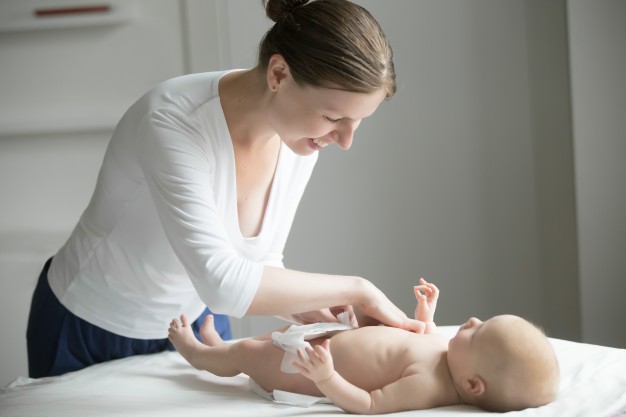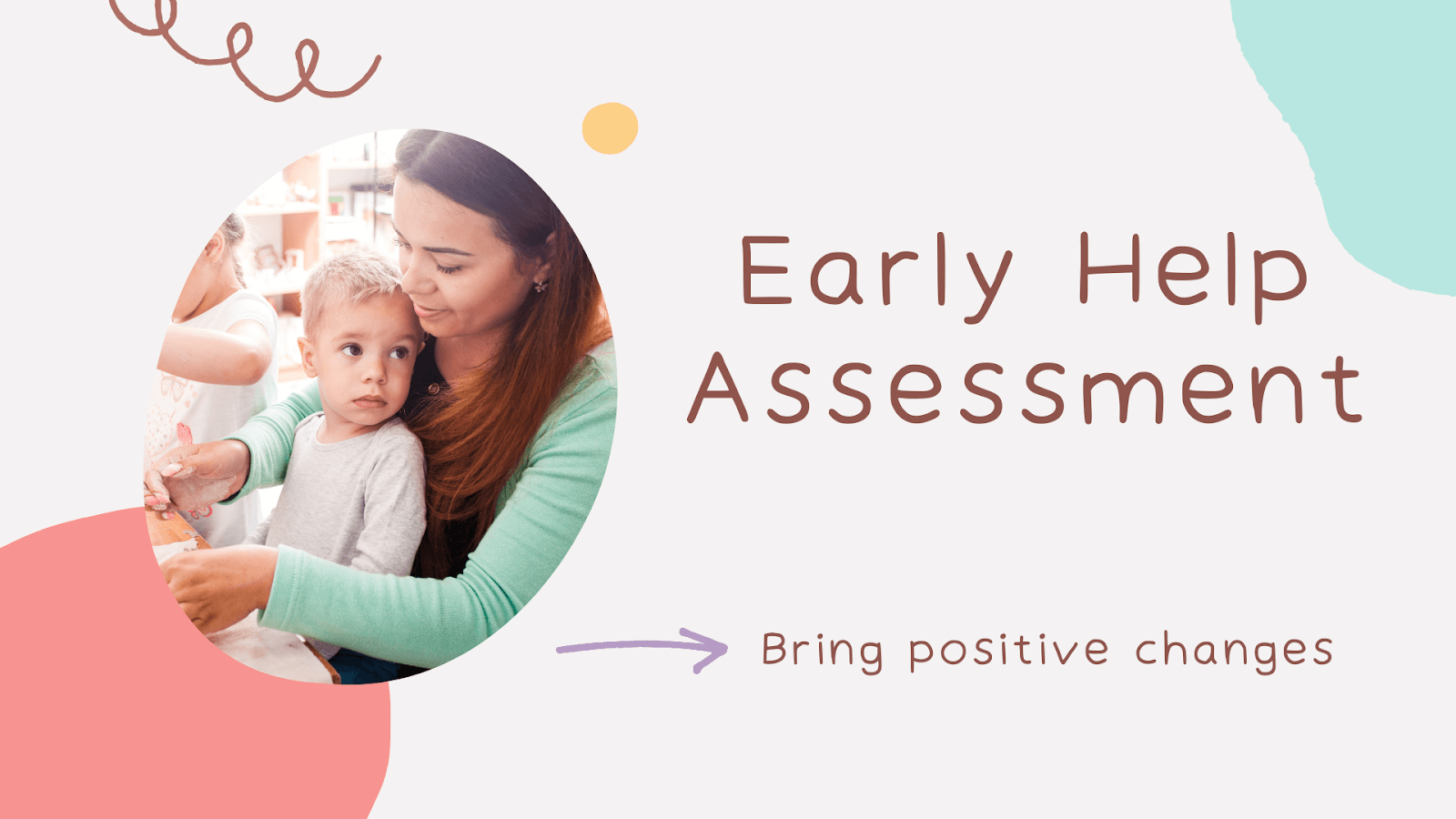There is nothing in this world that beats the feeling of bringing a new life to the world. Right from the first moment, you know that you are expecting different changes to start to take place. After going through the ups and downs of the pregnancy, now it’s time for parenting. No parents ever said it is easy. But no matter how hard parenting is, it is also a natural process like giving birth. This parenting guide will help you get through the first year of parenting.
You can plan everything out, but there are challenges that both mom and dad have to overcome. You learn as you go through the journey. The saddest part is that this baby will grow up even before you know it. It will be leaving you with memories and experiences.
All babies are different from one another. Tips and tricks that work for one baby might not work on another, so you have to keep on trying alternative ways. After researching many parenting theories, advice, and experiences, we have made this guide. It aims to reduce the stress of first-time new parents by giving them helpful tips to take care of their babies.
What you will find in this guide:
Get Help After Birth

After getting home from the hospital, taking care of the baby can be overwhelming. When you are a first-time parent and never had any experience with babies, you may become clueless. In a situation like this, do not hesitate to ask for help. Remember, you are learning, and no one can become a great parent in a day.
Relatives
Ask your mother or experienced relatives to help you through the first few months after the baby is born. In this way, you will not be completely alone. You will get emotional support and learn how to understand your baby’s needs and take care of them. Both parents can know their child better when there is someone experienced to guide.
Nurse
During your time in the hospital, you can look for a nurse or practitioner. They will help you with your baby and guide you on the breast or bottle-feed the baby, making them burp. The nurse also teaches you to understand your baby’s cause of discomfort. They will help you know the sleeping pattern and how to take care of the baby if they become ill.
For looking after the baby, you can also hire a nanny to be less stressed.
Parenting Guide for Baby Care

Sometimes help is hard to come by, and we are on our own. Your baby is dependent on you. As a result, they pick up on the environment and behave according to it. Every child is not the same, and what works for one baby may not work for another. Some general tips and tricks work for almost every infant. So, new mom or dad, you have nothing to worry about. This section will guide parents with everything they need to know about baby care.
How to hold and carry your newborn?
The first few months of the baby is very fragile. They are developing their immunity, and the bones are also generating. You have to carry the baby in the right way and in a clean way. Here are the steps to follow while carrying and holding the baby:
1. Wash Hands
Babies are fragile and do not have a developed immune system. They can catch illness like pneumonia and jaundice right after birth. Many babies develop diseases because of germs passed to them from other people. It is important to wash your hand or sanitise your hands before coming in contact with your baby. Ensure that guests and household members sanitise their hands before holding the baby.
2. Be comfortable and relaxed
As a new parent, it is okay to panic at the beginning of holding a baby. Relax and make yourself comfortable first. If standing and picking up the baby seems scary to you, then sit and pick up the baby. If you are in discomfort, chances are the baby will also become uncomfortable. Picking up the baby while sitting helps you maintain balance. Older people or children who may have trouble holding the baby’s weight should sit when holding the baby.
3. Give support to the baby’s neck and head
While holding the baby, support their head and neck with your hand. The baby’s head is the heaviest part of the body after birth, and their neck muscles are weak. They cannot support their head with the neck muscles. Give special attention to the soft spots on top of the head or the fontanelles when carrying them.
- Cradle the baby with your arms.
- Hold the baby upright with the help of your chest and support the head with your hand.
- You can belly-hold the baby by laying the baby on its front.
- Lap hold your baby by supporting their head with your knee.
4. Do not shake your baby
Right after birth till 4-6months, the brain is still developing. Shaking or bouncing the baby too much may cause internal bleeding and death. While waking up the baby, tickles their foot or blows a breath on their cheeks. Do not jiggle their knees or bounce them in the air, and it can be very risky. When carrying your baby on a pram, carrier or putting them in a car seat, make sure they are fastened to the seat. Avoid bouncy and rough roads as much as possible.
How to feed your baby?
Now that you know how to hold your baby, you have to manage the baby’s hunger. You have by now decided to breastfeed your baby or bottle-feed him or her. Breastmilk or formula milk will be enough for the baby. Newborn babies do not need other food like cereals, juice or other fluid.
Feeding
Here are some things to keep in mind when you are feeding your baby:
1. Their stomachs are tiny little things.
- They need food at a two to three hours interval.
- The baby needs to be fed at least eight to twelve times a day, whether you breastfeed or bottle-feed.
2. You can sometimes tell when the baby is hungry by looking at their behaviour.
- If they start sucking on their fingers or fists or making sucking sounds, they might be hungry.
- They also cry and become frantic, as later signs.
3. When you are feeding your baby.
- During breastfeeding, nurse the baby ten to fifteen minutes on each breast.
- When bottle-feeding your baby, give two to three-ounce of milk at each feeding.
- Ask your child specialist if you have to wake the baby often to feed the baby.
4. When the baby is full, they face away or do not suck anymore.
- You can understand if the baby is eating enough when there are at least six wet nappies and poops many times a day.
- You can also understand if your baby is well-fed if he or she is gaining weight.
5. If you are breastfeeding:
- Ask the doctor if the baby will need extra vitamin D supplements.
- Vitamin D is essential for growth and bone development.
- If you have a problem with lactation, a lactation consultant can help you.
6. Ensure you are routinely feeding your baby.
Try not to be inconsistent with their feeding time as it will hamper the baby’s behaviour and sleeping pattern.
7. The Baby’s food intake may vary day to day.
They sometimes eat more, usually when they are three to four weeks when they have growth spurts.
8. Consult the doctor:
If you have concern that your baby is not feeding well and doesn’t seem to gain a healthy weight, consult a doctor.
9. Feeding time is a bonding time with your baby.
Try to feed him or her soothingly.
Burping
While feeding, babies often swallow air which makes them uncomfortable. It might also cause them to throw up after feeding. Make sure you are making them burp. Try these burping methods:
- Take your baby upright with their head on your shoulder. Support your baby’s head and back and gently patting the back with another hand.
- Sit your baby on your lap and support your baby’s chest and head with one hand by cradling. Rest the heel of your hand on the baby’s chest and the baby’s chin on the palm of your hand. Using the other hand to pat your baby’s back gently.
- Lay your baby on his or her front over your lap. Support your baby’s head, and ensure the authority is higher than the chest. Pat or rub his or her back.
Keep on patting until the baby burps.
How to change a nappy?
For first time parents, this is one of the most unwanted tasks. But you have to clean up the mess anyway. Newborns need their nappies or clothes changed at least eight to ten times. It can be overwhelming at first, but you will get used to it.
You will get the clue that it’s time for changing nappies when the baby grunts and grimaces while pooping, and if not, the smell will tell you. Similarly, you will also know it’s time to change when the nappy is wet or becomes heavy.
Additionally, you can have a changing table or a changing spot at your home. Make sure you have everything you need to change the baby nearby.
- Clean nappy or cloth
- Clean washcloths, cotton balls or wipes.
- Bowl of light warm or warm water.
- nappy ointment
- A change of clothes
Wash your hands. Gather your supplies. Make sure you have everything you need in arms reach.
Method
Here’s how you can change a dirty nappy easily in a few steps –
1. Put your baby down on his or her back on the changing surface
2. Unfasten the nappy and lift the baby’s bottom from the nappy by holding their ankles gently upward. If there is too much of a mess, bring the nappy’s upper half, sweeping it toward the lower half of the nappy.
3. Put the dirty nappy away from the baby’s reach to be disposed of later on. Cover it with a disposable cleaning packet while putting the nappy in the bin.
4. Clean the baby’s bottom thoroughly so that there is no chance of getting rash. When cleaning a baby girl, wipe her from front to back to prevent urinary tract infection.
5. Bring a clean nappy underneath your baby’s bottom. Ensure that the tabs of the nappy are on the side. Many nappies these days have signs to indicate their front.
6. If the baby has rashes, apply doctor prescribed ointment before closing the nappies.
7. Close the nappy pulling it over the baby’s belly. Make sure to fold the nappy down to avoid irritation on the umbilical stump area until it falls off.
8. To prevent rashes, change and clean baby bottoms often and right after their bowel movement.
9. Wash the cloth nappy with soft fragrance-free detergent.
10. Clean the changing surface and wash your hand properly. This will prevent contamination.
Try to keep the baby out of nappies so that their bottom can breathe, and this will also help prevent rashes.
How do you give a bath to your baby?
Giving your bath is beneficial to keep the baby comfortable. It also helps you bond with the baby and helps the baby to fall asleep. But you should stick to a sponge bath until the umbilical cord falls off and the navel heals completely. This can take one to four weeks.
1. Give your baby a bath 2-3 times a week.
2. Ensure that your baby is warm.
3. Do not leave the baby alone in the tub.
4. Do not keep the water running.
While giving a bath, you will need-
- Clean wash clothes
- A bowl of warm water
- Mild baby soap and shampoo
- A soft hairbrush
- Towel
- Clean nappy
- Clean clothes
Sponge Bath
On a cleaning table, lay down your baby and discard clothes and dirty nappies. Put a towel underneath the baby to keep him or her warm. Start by cleaning their face. Damp a washcloth or cotton balls and wipe the babies eyes, nose and lips. Use new cotton balls and dampen the washcloth each time before cleaning each part. Use mild soap on the cloth and wash the baby’s face. Pat clean the face and dry it.
Build a lather with baby shampoo and gently wash your baby’s head and rinse it. Softly wash the rest of the body, especially under the arms, behind the ears, around the neck, and in the genital area. After you’ve cleaned those areas, make sure they’re fully dry before napping and dressing your baby.
Tub Bath
Get an infant tub that will fit your baby comfortably. Fill it two to three inches of warm water. Do not use hot water. By supporting your baby’s head, put his or her lower body in the water very slowly and gently. Wash your baby face and head using your finger pads. When rinsing shampoo, keep the baby’s eyes covered so that suds don’t get into the eyes. Thoroughly rinse the rest of the body by pouring and rinsing water on the body with your hands. Dry them immediately and cover them in a towel to keep them warm. Babies tend to get cold quickly.
How to put your baby to sleep?
Babies can sleep a lot. They nearly sleep sixteen hours a day. But they sleep for two to four hours at a time. Like us, they do not sleep throughout the night, and putting your baby to sleep can be challenging. Your baby, like adults, forms their own sleeping pattern. If you and your baby get into a routine, they will tend to sleep following that routine.
Always put your baby on their back to avoid sudden movement while sleeping. If your baby sleeps on a crib, do not populate the crib with too many toys and blankets as they may create suffocation. Alternate the baby’s head position from right to left each night to prevent flat spots.
Newborns do not have a fixed routine of sleeping. So, in the beginning, they are alert at night. To stimulate night sleep, keep the lights dim and other home activities too low. These activities will create a calm environment. Do activities like playing and other activities with the baby in the daytime when they are awake.
Put the baby down to a bed when they are drifting off or about to fall asleep and not when they entirely fall asleep. This will teach the baby to self-soothe herself to sleep.
How to build bonds and soothe your baby?
Bonding with your baby is an essential and memorable part of parenting. This also does not happen in one day. The baby knows the voices around him or her from the womb. When you start spending time with them, talking to them lovingly, they relate the voice to the face.
The newborns grow their emotional attachments with you with your physical closeness. Babies are happier and also become cheerful children when they have loving parents and other relatives.
Start bonding with your baby by cradling them to your chest and cooing to them. Additionally, sing them soft songs and be happy around them. They will pick on your behaviour. Holding them skin to skin can be great for both mother and father to build a bond. These activities will create bonds and also soothe them. To stimulate your baby’s hearing, you can sing them a song, talk to them, tell them rhymes.
Some babies can be sensitive to lights, sounds and touch. Keep lights and voices low around them and talk to them slowly.
If your baby is uncomfortable and crying, cradle them or hold them upright and stroll. Also, you can rock and sway them slowly. This is a relaxing activity. Swaddling the baby will also help the baby when they cry too much, as it creates a womb-like environment.
Crying is the only way a baby can speak to you. So if they need something, they will call for you to take care of it. They will usually cry when they are hungry, want to sleep, feel discomfort after spoiling the nappy or any other discomfort they feel.
Advice for Parents

The first few months of parenting is a rocky road. It can take a toll on both mom and dad. So you must take care of your health mentally and physically. No amount of parenting guide will help if you are not healthy yourself. Here are some tips for being healthy parents.
1. Sleep deprivation: New parents will struggle to get enough sleep. So you can sleep while your infant is sleeping.
2. Household chores: Try to make easy meals for yourself, and if you do not want to do the washing, you can always use one time plates and cups. Keep the laundry when you feel like doing it.
3. Take turns during the night: Share your duties during the night with your partner. The mom can be very sleep-deprived; they need a good night sleep sometimes. If you are breastfeeding, you can breast pump the milk so that your partner can feed the baby at night.
4. Keep the crib near the bed: This will help you easily attend to the baby at night.
5. Ask for help: Do not hesitate to ask your relatives, friend or neighbour to assist you with baby chores. This will also ensure you are emotionally healthy.
6. Spend time with your partner: While child-rearing, we often forget to take care of our relationship. You must find time for each other and look after each other.
7. Take time off from work: If both of you are working, take leaves sometimes. New parents are allowed to do so. Take as much rest as you can find.
8. Happy parents make happy babies: Babies are good at picking emotions and mood. Both mother and father mood affects the baby’s mood. Do not fight in front of the baby.
Relax!
Being a new parent is a whirlwind of experiences. It is a combination of utter joy, fear, and stress all at the same time. As a new parent, you and your partner’s responsibility will increase. Both of you have to understand the baby’s behaviour, adjust to it, and maintain your wellness.You, as a parent, will grow with your baby. No one becomes parents in one day. It requires everything you can do in your power to make the baby feel at home. No matter how big of a responsibility it is, it is one of the greatest joys on earth. So feel the charm of parenthood and enjoy your time playing “Baby shark, doo, doo, doo, doo, doo, doo..”







 May 20, 2021
May 20, 2021








